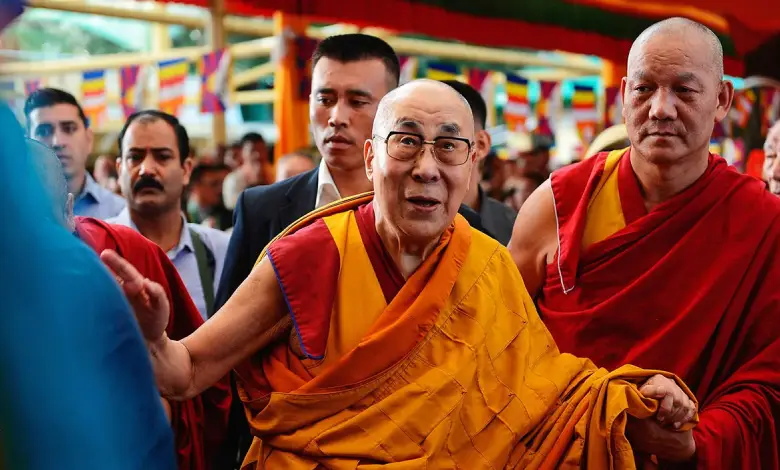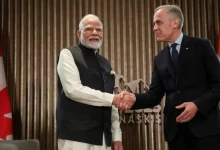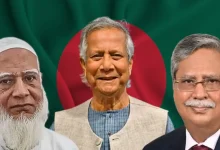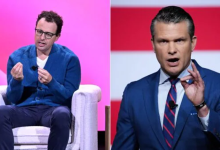Tibet vs. China: The Battle for The Next Dalai Lama

As the Dalai Lama nears his 90th birthday on July 6, he’s shaking up tradition with a groundbreaking announcement: his succession plan is taking shape while he’s still alive. This bold move by Tenzin Gyatso, the current Dalai Lama, could pave the way for an unprecedented rift in Tibetan Buddhism potentially resulting in two Dalai Lamas, one selected by Tibet and another by China.
A Break from Tradition
Typically, the quest for the Dalai Lama’s successor begins after his passing. Senior monks embark on a years-long journey, deciphering mystical signs and testing children to pinpoint the reincarnation of the previous leader’s consciousness. This time, however, the Dalai Lama is flipping the script. In a video message broadcast just days before his milestone birthday, he confirmed that his reincarnation will occur after his death, with the process overseen solely by the Gaden Phodrang Trust the official body tied to his office. “No one else has any such authority to interfere in this matter,” he stated firmly, according to an official translation.
How the Dalai Lama Is Chosen
For centuries, Tibetan Buddhists have followed a sacred, time-honored method to identify their spiritual leader. As Robbie Barnett, a senior research fellow at the School of Oriental and African Studies at the University of London, explained to ABC, “Lamas look for divination signs… mystical signs in lakes or in the mountains, messages from mountain deities that tell them where to go and look for a child.” That child is then tested to confirm they carry the consciousness of the former Dalai Lama. The current Dalai Lama himself was discovered this way in 1939, six years after the death of the 13th Dalai Lama, Thupten Gyatso. According to his official biography, a key moment came when the young boy identified items belonging to his predecessor, declaring, “It’s mine. It’s mine,” before being enthroned at Potala Palace in Lhasa in 1940.
So, what’s different this time around?
The selection process grew complicated after China’s invasion of Tibet in 1950 and the Dalai Lama’s exile to Dharamsala, India, in 1959 following a failed uprising. Since then, Beijing has sought to tighten its grip on Tibetan affairs, including religious leadership. A stark example came in 1995 when the Dalai Lama named Gendün Chökyi Nyima, a six-year-old boy, as the Panchen Lama the second-highest reincarnate lama in Tibetan Buddhism. China swiftly arrested the boy and his family, who have not been seen since, and installed their own Panchen Lama. Many Tibetans reject this appointee as a puppet of the Communist Party, accusing him of parroting Beijing’s policies.
What has the Dalai Lama said about his successor now?
Facing this ongoing interference, the Dalai Lama has taken steps to safeguard his succession. In his memoir Voice for the Voiceless: Over Seven Decades of Struggle With China for My Land and My People, published in March, he noted that Tibetans have urged him to ensure the continuation of his lineage through traditional means. On July 2, in a video address from Dharamsala where he has lived for decades he reiterated this commitment. Responding to pleas from the Tibetan diaspora, Buddhists across the Himalayas, Mongolia, Russia, and even Tibetans within China, he affirmed, “The institution of the Dalai Lama will continue.” He entrusted the Gaden Phodrang Trust with the task, involving senior lamas and established spiritual practices, and explicitly ruled out any outside meddling a clear jab at Beijing.
What about China then?
Beijing, however, shows no sign of backing down. Viewing the Dalai Lama as a separatist, Chinese officials insist they hold the reins over his succession. Foreign ministry spokeswoman Mao Ning told a news briefing that the next Dalai Lama “must be chosen by drawing lots from a golden urn, and approved by the central government,” referencing an 18th-century Qing dynasty ritual. “The Chinese government implements a policy of freedom of religious belief, but there are regulations on religious affairs,” she added. Experts like Dibyesh Anand, a professor at the University of Westminster, told the BBC that China will likely name its own Dalai Lama, leveraging its resources to impose the choice despite widespread skepticism. John Powers, a Buddhism studies lecturer at the University of Melbourne, echoed this to ABC, suggesting the Communist Party might stage a faux ceremony with coerced lamas to legitimize their pick.
A Divided Future?
Tibetan leaders and supporters remain defiant. Youdon Aukatsang, an MP in the Tibetan parliament-in-exile, told the BBC, “A Dalai Lama chosen by China will not be recognised, not only by the Tibetans but the world will not recognise it because China doesn’t have the legitimacy.” Yonten, a Tibetan quoted by The Diplomat, called the Dalai Lama’s preemptive move “both brave and wise,” arguing it protects their faith from political manipulation. With the spiritual leader’s 90th birthday looming, the stakes are high. The prospect of dual Dalai Lamas one backed by Tibet’s traditions and another by China’s might looms large, threatening to split a centuries-old legacy. As the world watches, Tibetans hold fast to their right to shape their spiritual future.
With inputs from agencies




